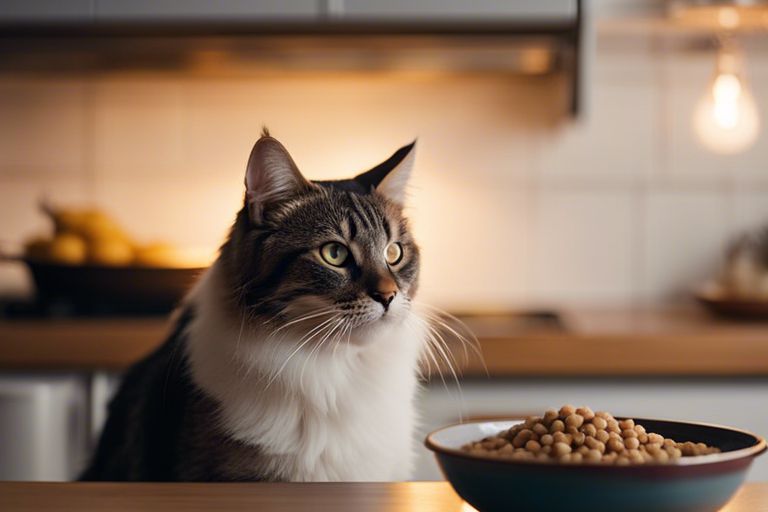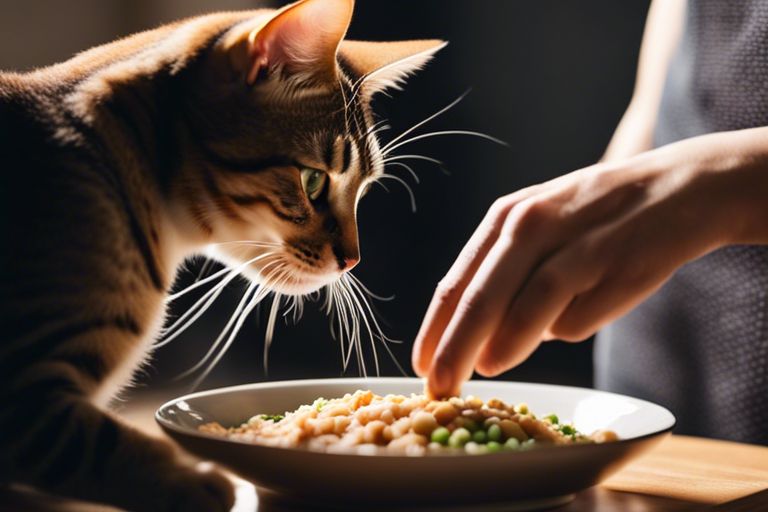Experiencing digestive issues with your feline friend can be concerning, but there are steps you can take to help alleviate their discomfort and improve their overall digestive health. One of the most important things you can do is to ensure they have a healthy diet that is easy for them to digest. Avoid feeding them foods that are high in fat or difficult for them to process. Additionally, providing them with plenty of water and monitoring their eating habits can also make a significant difference. It is also crucial to consult with your veterinarian to identify any underlying health issues that could be contributing to their digestive problems and to get the proper professional guidance on how to best address the issue.
Key Takeaways:
- Consult a veterinarian: If your cat is experiencing digestive issues, it’s important to seek guidance from a professional to determine the cause and develop a treatment plan.
- Switch to a high-quality cat food: Look for products that are highly digestible and contain natural ingredients that promote gut health.
- Consider adding probiotics: Probiotic supplements can help balance your cat’s digestive system and improve their overall gut health.
- Monitor your cat’s eating habits: Keep an eye on their food consumption and note any changes in appetite or eating behavior, as these may indicate underlying digestive issues.
- Avoid feeding human food: Human food can disrupt your cat’s digestive system and cause gastrointestinal upset, so stick to a balanced and species-appropriate diet for your feline.
Identifying Digestive Problems
Any loving cat owner wants to make sure their feline friend is happy and healthy. One common area of concern for cat owners is digestive issues. Identifying the symptoms of digestive problems in your cat is the first step in helping them feel better.
Common Symptoms of Digestive Issues
When it comes to digestive problems in cats, there are several common symptoms to look out for. These can include vomiting, diarrhea, constipation, loss of appetite, weight loss, and lethargy. If you notice any of these symptoms in your cat, especially if they persist for more than a day, it’s important to take action.
When to See a Veterinarian
If your cat is experiencing digestive issues, it’s important to know when to seek professional help. While occasional vomiting or diarrhea may not be cause for immediate concern, if these symptoms are frequent, severe, or accompanied by other worrisome signs, it’s time to see a veterinarian. Additionally, if your cat’s appetite has decreased significantly or they are showing signs of discomfort, it’s best to seek medical attention to rule out any serious underlying issues.

Dietary Management
Even if your cat is suffering from digestive issues, there are steps you can take to help manage their condition. It’s crucial to pay attention to your cat’s diet because it plays a significant role in their digestive health. For more in-depth information on cat digestive problems, you can read this informative blog post on Cat Digestive Problems: Symptoms, Diagnosis, and ….
The Role of Diet in Feline Digestive Health
The diet is a critical component in managing your cat’s digestive issues. It can make a significant difference in their overall well-being. A proper diet can aid in reducing symptoms, promoting gut health, and preventing future issues. By providing your cat with a balanced diet, you can help maintain their digestive system’s health.
Recommended Foods and Ingredients
When it comes to choosing the right food for your cat with digestive problems, it’s essential to look for high-quality, easily digestible options. You should consider selecting foods that are formulated for digestive health and contain limited, high-quality ingredients. Avoid foods with artificial additives, fillers, and potential allergens, as these can exacerbate your cat’s digestive issues. Opt for foods with probiotics and prebiotics to promote healthy digestion and a strong gut microbiome.
Home Care and Treatment
Keep a close eye on your cat’s symptoms and behavior to monitor how they are feeling. Make sure to provide a calm and stress-free environment for them, as stress can exacerbate digestive issues in cats. You can also try to help your cat with their digestive issues at home through proper care and treatment.
Probiotics and Digestive Supplements
If your cat is experiencing digestive issues, probiotics and digestive supplements can be very helpful in maintaining their gut health. Probiotics are beneficial bacteria that can help restore the balance of your cat’s intestinal microbiome, while digestive supplements can aid in the breakdown and absorption of nutrients. Be sure to consult with your veterinarian before giving your cat any probiotics or supplements, as they can advise you on the proper dosage and type based on your cat’s specific needs.
Home Remedies and Comfort Measures
When dealing with digestive issues, there are several home remedies and comfort measures that can help ease your cat’s discomfort. You can try adding a small amount of pumpkin to their diet, as it can help regulate their digestion. Additionally, ensuring that your cat has access to plenty of clean water can aid in their hydration and help flush out any toxins from their system. However, it’s important to note that these measures are not a substitute for veterinary care, and you should always consult with your veterinarian before trying any home remedies.
Prevention and Long-Term Health
After addressing your cat’s immediate digestive issues, it’s important to consider prevention and long-term health strategies to ensure that your feline friend stays healthy in the future.
Regular Health Check-ups and Tests
Scheduling regular health check-ups and tests with your veterinarian is crucial for maintaining your cat’s digestive health. Your vet can perform tests to monitor your cat’s digestive system and catch any potential issues early on. They can also provide guidance on dietary and lifestyle adjustments to keep your cat’s digestive system in top shape.
Lifestyle Changes and Environmental Factors
Assume that lifestyle changes and environmental factors can greatly impact your cat’s digestive health. Stress, lack of exercise, and poor diet can contribute to digestive issues. Make sure your cat has a calm and enriching environment to reduce stress. Additionally, ensure they have plenty of opportunities for physical activity, and feed them a high-quality, digestion-friendly diet.
- Provide a stress-free environment for your cat
- Offer plenty of opportunities for physical activity
- Feed a high-quality, digestive-friendly diet
The Best Ways to Help Your Cat with Digestive Issues
The key to helping your cat with digestive issues is to first identify the cause. It could be due to dietary issues, stress, or an underlying health condition. Once you have pinpointed the cause, you can make necessary adjustments to your cat’s diet, provide them with a stress-free environment, or seek medical attention from a veterinarian. Additionally, you can introduce probiotics and digestive enzymes to improve their gut health. It’s important to monitor your cat’s behavior and symptoms closely and make changes accordingly. With the right care, attention, and adjustments, you can help alleviate your cat’s digestive issues and improve their overall health and well-being.
FAQ
Q: What are some common signs of digestive issues in cats?
A: Common signs of digestive issues in cats include vomiting, diarrhea, constipation, lack of appetite, weight loss, and excessive grooming. If your cat is showing these symptoms, it’s important to consult with a veterinarian to determine the underlying cause.
Q: How can I help my cat with digestive issues at home?
A: There are several ways to help your cat with digestive issues at home. You can try feeding your cat a bland diet consisting of easily digestible foods such as boiled chicken and rice. It’s also important to ensure that your cat has access to plenty of fresh water. Additionally, probiotics and digestive enzymes may be beneficial in improving your cat’s digestive health. However, it’s crucial to first seek advice from a veterinarian before making any changes to your cat’s diet or adding supplements.
Q: When should I seek veterinary care for my cat’s digestive issues?
A: If your cat is experiencing persistent or severe digestive issues, it’s essential to seek veterinary care promptly. This includes symptoms such as blood in the stool, dehydration, persistent vomiting, and lethargy. A veterinarian can perform a thorough examination and recommend appropriate treatment based on the underlying cause of your cat’s digestive issues.

Jayley, a devoted cat enthusiast, also writer for other cat blog as well. She aims to dedicated to providing comprehensive information, insights, and advice on everything you’d ever want to know about our whiskered companions.
